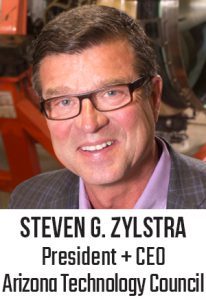AZTC: There should not be any barriers to voting. Period.
I remember that day so clearly. A feeling of pride washed over me while walking into that building in Michigan. I was prepared to make my choices and looked forward to the outcome of those decisions. I was about to really experience freedom.
 No, this isn’t about taking the test for my first driver’s license and hitting the open road. It was something more important. At last, it was my turn to vote for the first time. After studying the candidates and the issues, I was about to become part of something bigger than myself. I was taking part in our democracy.
No, this isn’t about taking the test for my first driver’s license and hitting the open road. It was something more important. At last, it was my turn to vote for the first time. After studying the candidates and the issues, I was about to become part of something bigger than myself. I was taking part in our democracy.
It seems so strange to me that years later the focus is on voting rights. C’mon, this is even a topic in the 21st century?
More than several hundred bills now are making their ways through legislatures around the country—Arizona included—that ultimately could make voting more difficult. Voting should be as easy and accessible as possible for all Americans. It’s a right. And I’m not alone in feeling that way.
“Regardless of our political affiliations, we believe the very foundation of our electoral process rests upon the ability of each of us to cast our ballots for the candidates of our choice.” These are the words that were part of a two-page ad published last month in The New York Times and The Washington Post.
It continued: “Voting is the lifeblood of our democracy and we call upon all Americans to join us in taking a nonpartisan stand for this most basic and fundamental right of all Americans.”
I couldn’t have captured these sentiments better. The ad contained the endorsements of corporations and individuals throughout the nation. Obviously, my role made me more than a little curious about who was there from the technology community. These are the names that stood out in the corporate list:
- Alphabet (parent of Google)
- Amazon
- Apple
- Cisco
- Dell Technologies
- Dropbox
- IBM
- Microsoft
- Netflix
- PayPal
- SurveyMonkey
Separately, executives from some of those companies further explained their views. In a Twitter posting, Cisco CEO and Chairman Chuck Robbins wrote that “governments should be working to make it easier to vote, not hard.” He argued that protecting voting rights is “an issue of right and wrong.”
Microsoft President Brad Smith a few months ago published a blog outlining his company’s concerns about Georgia’s new voting law, saying it “contains important provisions that needlessly and unfairly make it more difficult for people to vote.”
Outside the ad, executives of other companies with Arizona ties have weighed in on the topic. An Intel spokesperson has said the tech giant signed a letter from the Business for Voting Rights coalition calling on the U.S. Senate to pass voting-rights legislation, as the House had done. “As our CEO, Pat Gelsinger, has said, Intel opposes any legislation that seeks to reduce the voting rights or opportunities of American citizens,” the spokesperson shared.
Another company very much a player in the technology arena is Caterpillar, which is better known globally as a heavy-equipment manufacturer. A statement on the company’s website reflects its history of voter advocacy, reading in part, “We support equal access and opportunity for all eligible voters to participate in the election process.”
Yes, indeed.
Steve Zylstra is president and CEO of the Arizona Technology Council.
VISIT HERE to view the Phoenix Business Journal article on its website.

